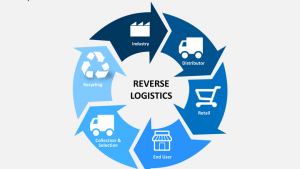In the world of technology, the concept of reverse logistics has become increasingly important. As consumers continue to purchase and upgrade their electronic devices, the need for efficient returns and recycling processes has become a priority for manufacturers and retailers alike. In this article, we will explore the challenges and opportunities of managing reverse logistics in the tech industry.
The Importance of Reverse Logistics
Reverse logistics is the process of managing product returns and recycling in an efficient and cost-effective manner. In the tech industry, where products are constantly evolving and being replaced, the need for a well-organized reverse logistics system is crucial. Not only does it help to minimize waste and reduce environmental impact, but it also allows companies to recapture value from returned products.
Challenges in Managing Returns
One of the biggest challenges in managing returns is dealing with the sheer volume of products that are returned each year. Whether it’s due to a defect, a change of mind, or an upgrade, manufacturers and retailers must have a system in place to handle returns efficiently. This often involves processing returns, inspecting products for damage, and determining the best course of action, whether it be refurbishing, recycling, or reselling.
Opportunities in Recycling
Recycling is another key aspect of reverse logistics in the tech industry. As electronic devices become more prevalent in our daily lives, the need to recycle them responsibly has never been greater. By implementing a recycling program, companies can reduce their environmental impact and contribute to a more sustainable future. Additionally, recycling can also be a source of revenue, as recycled materials can be used to create new products.
Best Practices for Managing Reverse Logistics
There are several best practices that companies can follow to effectively manage reverse logistics in the tech industry. One of the most important is to have a clear and efficient returns process in place. This includes providing customers with clear instructions on how to return products, as well as implementing a system for tracking returns and processing them quickly.
Another best practice is to work with third-party logistics providers who specialize in reverse logistics. These providers can help companies streamline their returns and recycling processes, ensuring that products are handled properly and efficiently. Additionally, companies can also benefit from working with recycling partners who can help them responsibly dispose of electronic waste.
Conclusion
Reverse logistics is a crucial aspect of managing returns and recycling processes in the tech industry. By implementing efficient systems and best practices, companies can minimize waste, reduce environmental impact, and recapture value from returned products. As the tech industry continues to evolve, the importance of reverse logistics will only continue to grow, making it essential for companies to prioritize and invest in this area.
Overall, by managing reverse logistics effectively, companies can not only improve their bottom line but also contribute to a more sustainable future for all.
References:
https://www.sustainability-times.com/environmental-protection/reverse-logistics-tech-industry/
https://www.sciencedirect.com/science/article/pii/S0377221719306621

